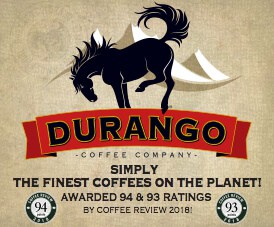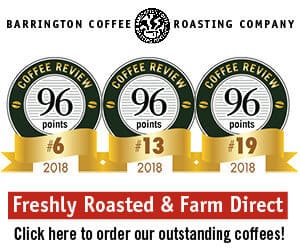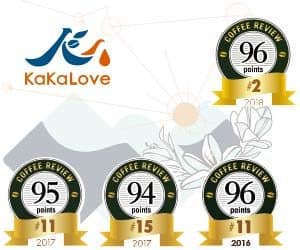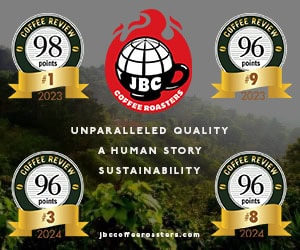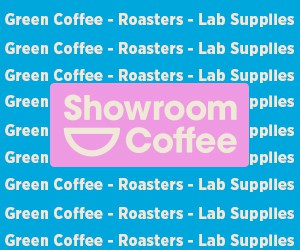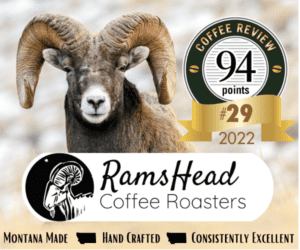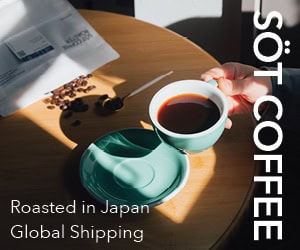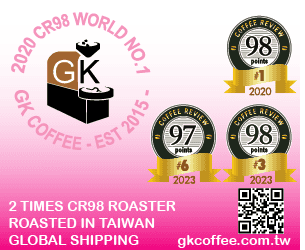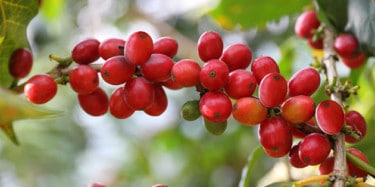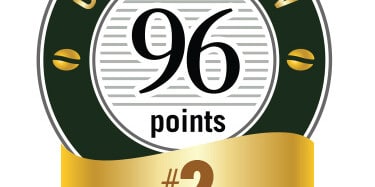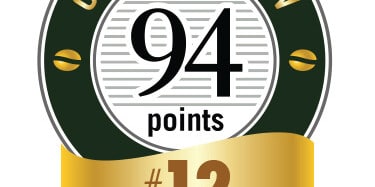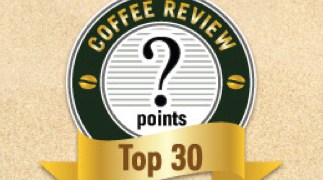In the past, our Top 30 Coffees lists tended to favor high-scoring coffees produced from botanical varieties of Arabica with striking sensory properties such as Geshas, coffees from the distinctive traditional Ethiopian varieties, Kenyan coffees, and so on. Last year, we began the practice of recognizing coffees by category to focus attention on fine coffees from other parts of the world and/or
SEARCH RESULTS
Toarco Jaya Sulawesi
Toarco (TOraja ARabica COffee) is a coffee project in the famous Sulawesi coffee growing region of Toraja developed and financed by Japan’s Key Coffee Company and its Indonesian partners. Toarco coffees are processed by variants of the orthodox wet or washed method, giving them a brighter and cleaner profile than Sulawesi coffees processed by the locally traditional wet-hulling method. Until
Cielo El Salvador
This coffee is comprised of lots selected and processed by Eduardo Alvarez and his family at El Borbollon Mill from trees of the Red Bourbon variety of Arabica. Processed by the conventional wet or “washed” method, in which skin and fruit flesh are removed from the beans or seeds before they are dried. JBC Coffee Roasters’ vision is simple: “let the coffee lead the way” through sourcing and
El Aguila Pacamara El Salvador
This lot is comprised entirely of the much admired, bold-bean Pacamara variety of Arabica, a cross between the giant-beaned Maragogipe variety and Pacas, a selection of the heirloom Bourbon. Finca El Aguila is owned by farmer Mauricio Ariz and his sons, who are fourth- and fifth-generation growers. JBC Coffee Roasters’ vision is simple: “let the coffee lead the way” through sourcing and roasting
Worka Ethiopia
Worka is one of twenty-three primary cooperatives located in the Gedeo Zone of Southern Ethiopia that together make up the Yirgacheffe Farmers Union. Yirgacheffe coffees like this one processed by the wet or washed method (fruit skin and pulp is removed before drying) typically express great aromatic complexity and intensity with a particular emphasis on citrus and floral notes. JBC Coffee
Worka Espresso
Worka is one of twenty-three primary cooperatives located in the Gedeo Zone of Southern Ethiopia that together make up the Yirgacheffe Farmers Union. Yirgacheffe coffees like this one processed by the wet or washed method (fruit skin and pulp is removed before drying) typically express great aromatic complexity and intensity with a particular emphasis on citrus and floral notes. JBC Coffee
El Vapor Espresso
Produced from trees of the Caturra and Catuai varieties of Arabica by the Cooperativa de Caficultores de Dota, a cooperative admired for its environmental and social initiatives as well as its fine coffees. JBC Coffee Roasters’ vision is simple: “let the coffee lead the way” through sourcing and roasting the best and most unique coffees available and rewarding the farmers who grow those coffees
Costa Rica El Vapor
Produced from trees of the Caturra and Catuai varieties of Arabica by the Cooperativa de Caficultores de Dota, a cooperative admired for its environmental and social initiatives as well as its fine coffees. JBC Coffee Roasters’ vision is simple: “let the coffee lead the way” through sourcing and roasting the best and most unique coffees available and rewarding the farmers who grow those coffees
Deri Kochoha Espresso
This outstanding coffee was selected as the No. 2 coffee on Coffee Review’s list of the Top 30 Coffees of 2016. From the Deri Kochoha mill in the Hagere Maryame District, a little south of the famous Yirgacheffe region, where coffees from local heirloom trees are subject to classically rigorous, traditional processing and drying procedures. This is a wet-processed or “washed” coffee, meaning the
Deri Kochoha Ethiopia
From the Deri Kochoha mill in the Hagere Maryame District, a little south of the famous Yirgacheffe region, where coffees from local heirloom trees are subject to rigorous, traditional processing and drying procedures. “WP” is an abbreviation for wet-processing, indicating that this coffee has been subject to the traditional “washed” processing method in which the fruit residue is removed from the
Tolima Colombia
Produced by the Resguardo Indigena Nasa We'sx indigenous community in Gaitania, Colombia, associated with the Paez and Nasa tribes of southern Cauca. From trees of the Castillo, Caturra, Colombia and Typica varieties of Arabica. This coffee is organic and Fair Trade certified, the latter meaning it was purchased from small-holding farmers at a “fair” or economically sustainable price. It is a
Harfusa Espresso
Yirgacheffe is a coffee region in southern Ethiopia that produces distinctively floral- and fruit-toned coffees from traditional varieties of Arabica long grown in the region. Yirgacheffe coffees like this one processed by the wet or washed method (fruit skin and pulp is removed before drying) typically express great aromatic complexity and intensity with a particular emphasis on citrus and floral
Adame Gorbota Espresso
Yirgacheffe is a coffee region in southern Ethiopia that produces distinctive coffees from traditional varieties of Arabica long grown in the region. Yirgacheffe coffees like this one processed by the wet or washed method (fruit skin and pulp is removed before drying) typically express great aromatic complexity and intensity with a particular emphasis on citrus and floral notes. This coffee is
El Aguila Pacamara Espresso
This exceptional coffee was selected as the No. 12 coffee on Coffee Review’s list of the Top 30 Coffees of 2016. This lot is comprised entirely of the much admired, bold-bean Pacamara variety of Arabica, a cross between the giant-beaned Maragogipe variety and Pacas, a selection of the heirloom Bourbon. This is a wet-processed or “washed” version, meaning the fruit skin and pulp were removed from
Adame Gorbota Ethiopia
Yirgacheffe is a coffee region in southern Ethiopia that produces distinctive coffees from traditional varieties of Arabica long grown in the region. Yirgacheffe coffees like this one processed by the wet or washed method (fruit skin and pulp is removed before drying) typically express great aromatic complexity and intensity with a particular emphasis on citrus and floral notes. This coffee is
Rock the House Blend
The name of this blend resulted from a contest held some years ago on the JBC Facebook page. Coffees composing this blend are certified organically grown and Fair Trade certified, the latter meaning the green beans were purchased from small-holding farmers at a “fair” or economically sustainable price. JBC Coffee Roasters was founded in 1994 as Johnson Brothers Coffee Roasters and is a
Top 30 Coffees of 2015
We are pleased to present our Top 30 Coffees of 2015, Coffee Review’s third annual ranking of the most noteworthy coffees among those we reviewed over the past twelve months. In 2015, we cupped thousands of samples and published more than 300 coffee reviews. Approximately ninety of the reviewed coffees scored 94 points or higher. Obviously, all coffees earning scores of 94 points or more are
Harfusa Ethiopia Yirgacheffe Fair Trade Organic
Yirgacheffe is a coffee region in southern Ethiopia that produces distinctively floral- and fruit-toned coffees from traditional varieties of Arabica long grown in the region. Yirgacheffe coffees like this one processed by the wet or washed method (fruit skin and pulp is removed before drying) typically express great aromatic complexity and intensity with a particular emphasis on citrus and floral
ASOPCAFA Colombia
This coffee was produced by the ASOPCAFA Cooperative, which was founded in 2013 and has 84 members. It is a wet-processed, or washed, coffee, meaning that the skin and fruit pulp were removed or “washed” from the beans before they were dried. JBC Coffee Roasters was founded in 1994 as Johnson Brothers Coffee Roasters and is a family-owned specialty coffee roastery located in Madison, Wisconsin.
Category Rankings
Over the past couple years, Coffee Review's annual “Top 30” ranking of the year's most noteworthy coffees has attracted considerable attention. As many readers have noted, our rankings tended to favor high-scoring coffees produced from botanical varieties of Arabica with striking sensory properties: coffees of the Gesha/Geisha variety, coffees from the distinctive traditional Ethiopian varieties,


